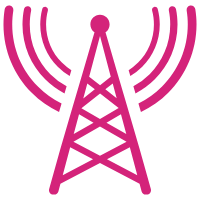-
 @ nostr_cn_dev
2025-04-12 03:16:30
@ nostr_cn_dev
2025-04-12 03:16:30What is Nostr?
Nostr is a simple, open protocol that enables global, decentralized, and censorship-resistant social media.
nostr 是 去中心化的 抗审查的社交媒体。
去中心化,其实就是多中心化,这里中心就是relay 服务器。现在的nostr 网络上有很多relay服务器可以存储信息。 * 短文,就是写类似微博,朋友圈什么的。 * 长文,可以写长博客,写书什么的。 * 图片 和 视频 ,nostr社区有专门的 图片和视频服务器很多都是免费的,按照nostr协议上传即可。
Simple
The protocol is based on very simple & flexible event objects (which are passed around as plain JSON) and uses standard elliptic-curve cryptography for keys and signing. The only supported transport is websockets connections from clients to relays. This makes it easy to write clients and relays and promotes software diversity.
nostr的协议非常简单,客户端通过 event 的格式(json)打包通过websocket 和relay服务器交互。
将一个 短文传到 relay服务器,很多relay服务器都 无需任何权限。任何人都可以上传获取读取服务器内容。
协议中是通过加密签名的,因此发布者拥有每个event的所有权,是可以证实的。
Verifiable
Because Nostr accounts are based on public-key cryptography it's easy to verify messages were really sent by the user in question.
nostr的账户是基于密码学生成的,用户无需邮件和手机注册; 也许无需到任何服务器去注册。 这一点 非常的具有吸引力,就像每个人的BTC账户一样。非常的自由,让用户感觉的无比的的快捷。
!> 以上两点是深深吸引 nostr用户的地方。自由,而不伤害第三方。
Nostr: a quick introduction, attempt by fiatjaf
Nostr doesn't have a material existence, it is not a website or an app. Nostr is just a description what kind of messages each computer can send to the others and vice-versa. It's a very simple thing, but the fact that such description exists allows different apps to connect to different servers automatically, without people having to talk behind the scenes or sign contracts or anything like that.
When you use a Nostr client that is what happens, your client will connect to a bunch of servers, called relays, and all these relays will speak the same "language" so your client will be able to publish notes to them all and also download notes from other people.
That's basically what Nostr is: this communication layer between the client you run on your phone or desktop computer and the relay that someone else is running on some server somewhere. There is no central authority dictating who can connect to whom or even anyone who knows for sure where each note is stored.
If you think about it, Nostr is very much like the internet itself: there are millions of websites out there, and basically anyone can run a new one, and there are websites that allow you to store and publish your stuff on them.
The added benefit of Nostr is that this unified "language" that all Nostr clients speak allow them to switch very easily and cleanly between relays. So if one relay decides to ban someone that person can switch to publishing to others relays and their audience will quickly follow them there. Likewise, it becomes much easier for relays to impose any restrictions they want on their users: no relay has to uphold a moral ground of "absolute free speech": each relay can decide to delete notes or ban users for no reason, or even only store notes from a preselected set of people and no one will be entitled to complain about that.
There are some bad things about this design: on Nostr there are no guarantees that relays will have the notes you want to read or that they will store the notes you're sending to them. We can't just assume all relays will have everything — much to the contrary, as Nostr grows more relays will exist and people will tend to publishing to a small set of all the relays, so depending on the decisions each client takes when publishing and when fetching notes, users may see a different set of replies to a note, for example, and be confused.
Another problem with the idea of publishing to multiple servers is that they may be run by all sorts of malicious people that may edit your notes. Since no one wants to see garbage published under their name, Nostr fixes that by requiring notes to have a cryptographic signature. This signature is attached to the note and verified by everybody at all times, which ensures the notes weren't tampered (if any part of the note is changed even by a single character that would cause the signature to become invalid and then the note would be dropped). The fix is perfect, except for the fact that it introduces the requirement that each user must now hold this 63-character code that starts with "nsec1", which they must not reveal to anyone. Although annoying, this requirement brings another benefit: that users can automatically have the same identity in many different contexts and even use their Nostr identity to login to non-Nostr websites easily without having to rely on any third-party.
To conclude: Nostr is like the internet (or the internet of some decades ago): a little chaotic, but very open. It is better than the internet because it is structured and actions can be automated, but, like in the internet itself, nothing is guaranteed to work at all times and users many have to do some manual work from time to time to fix things. Plus, there is the cryptographic key stuff, which is painful, but cool.
诞生blog
https://fiatjaf.com/nostr.html
The simplest open protocol that is able to create a censorship-resistant global "social" network once and for all.
It doesn't rely on any trusted central server, hence it is resilient; it is based on cryptographic keys and signatures, so it is tamperproof; it does not rely on P2P techniques, therefore it works. ...